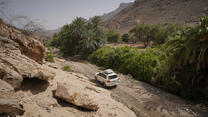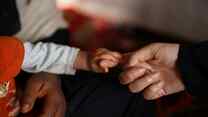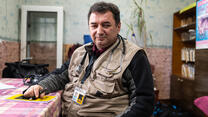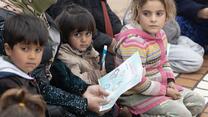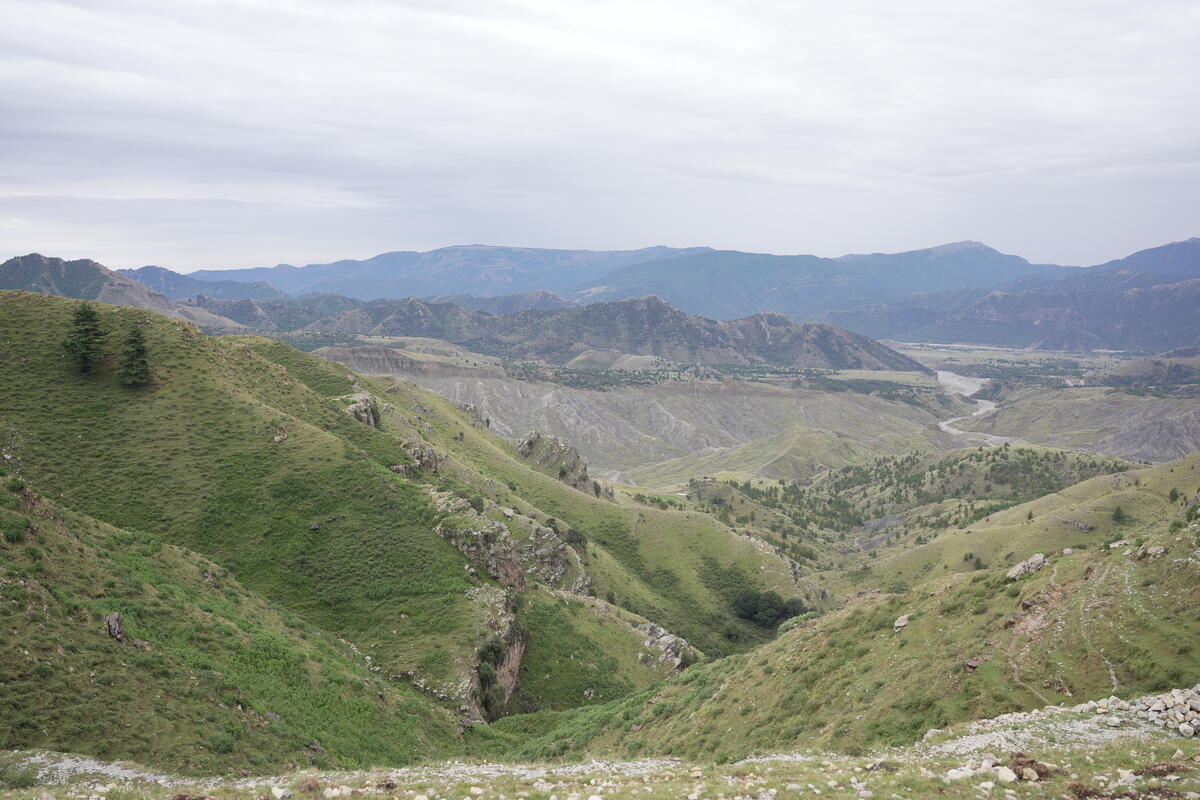
Pakistan remains one of the most disaster-prone countries in the world. The IRC and the EU are responding to the most pressing health needs on the ground.
Photos by Junaid Mukhtar
Regional instability, climate change, and widespread poverty have only contributed to a rising number of humanitarian emergencies in Pakistan. Many struggle to meet their basic needs, including adequate food, sanitation, and healthcare. Coupled with catastrophic flooding in the summer of 2022 - impacting almost 33 million across the country - Pakistan is reeling from devastating shocks to both its infrastructure and economy in the aftermath.
With a particular focus on the most affected, such as women, girls, and children, the IRC, together with the Medical Emergency Resilience Foundation (MERF) and the European Union (EU), has been running programs aimed at strengthening healthcare systems and responding to food insecurity in the northwestern region of Pakistan.
Get a glimpse into the IRC’s work in Pakistan below:
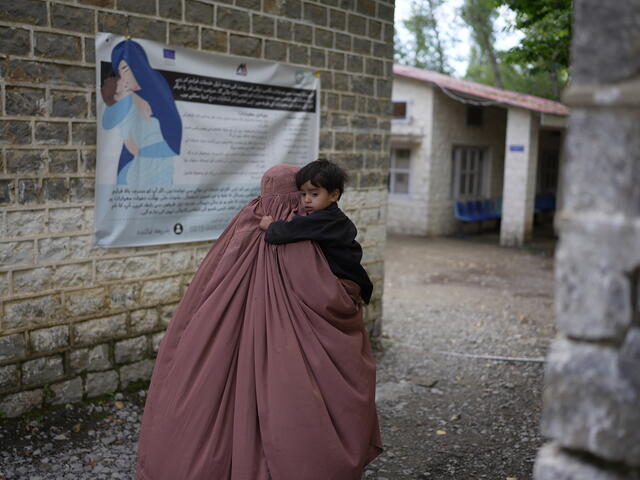
For those living in remote regions in Khyber Paktunkhwa, located in the northwest of the country, healthcare facilities have always remained scant. Healthcare infrastructure remains fragile, and despite the surging need for high-quality health services, many have not been given the means and necessary information to seek support. Many citizens struggle to access and make use of specialised services — especially reproductive services and care targeted towards children and infants.
One of the IRC’s most crucial goals in Pakistan has been to increase capacity for its healthcare system — to ensure those in need can get access to the vital support that they need.
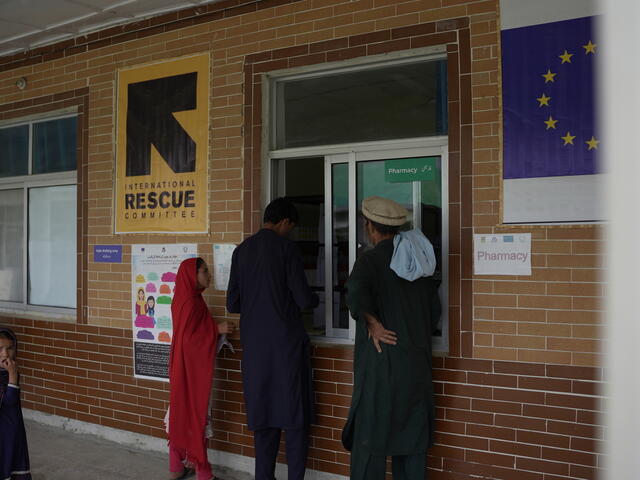
Inside the IRC’s EU-funded health facilities, pharmacy corners have been set up so patients can quality medication for treatment free of charge.
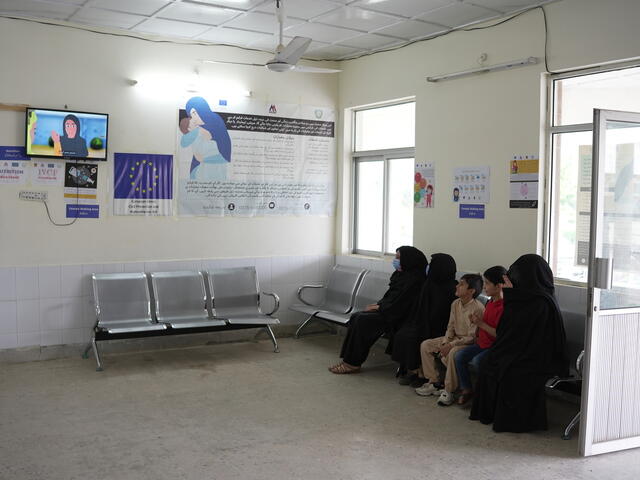
The health centres are open for anyone to come in with whatever needs and concerns they might have and seek consultation for. Through animations on essential hygiene or pamphlets on the importance of maternal health, the IRC ensures that information on healthy behaviours is available everywhere.
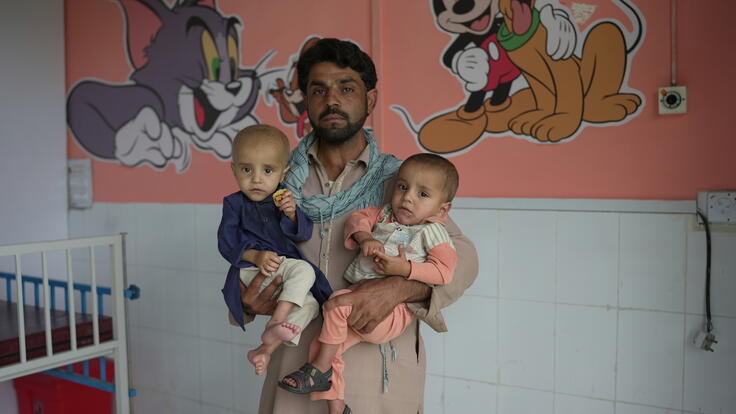
Shakeel, father of two-year-old twins Afnan and Adnan, worried about his childrens’ health. “I noticed that they were growing weak, and could not sit even though they were two years old,” he said. After hearing about the IRC’s EU-funded health facility, he started to bring his boys for regular check-ups.
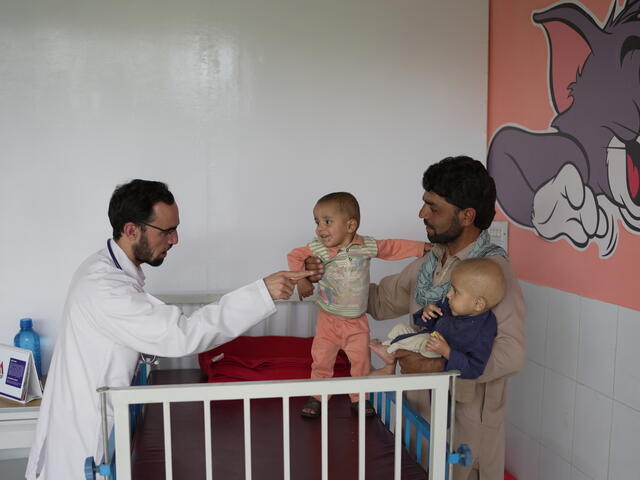
Mujahid Hussaein, a doctor with the IRC, determined that Shakeel’s twins were severely malnourished. However, after starting treatment at the IRC’s health center, the boys’ health has improved significantly. “The parents feel very relieved now,” says Dr. Mujahid.
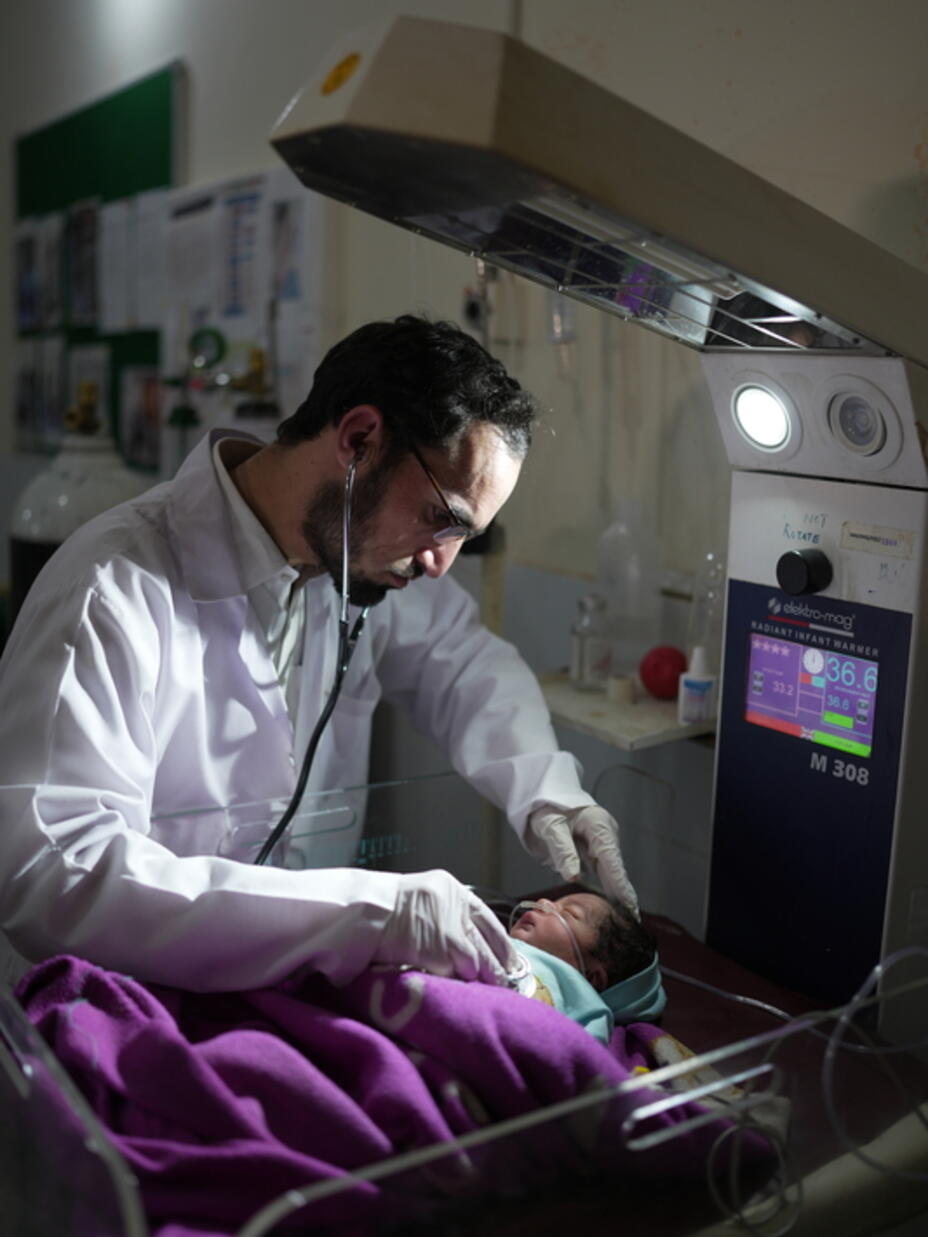
Coming from the same locality as most of his patients, Dr. Mujahid feels privileged to play a part in ensuring the health and safety of children and infants in the community. “I feel proud to be a source of benefit to my people,” he says, explaining his motivation behind working at the IRC’s health facility.
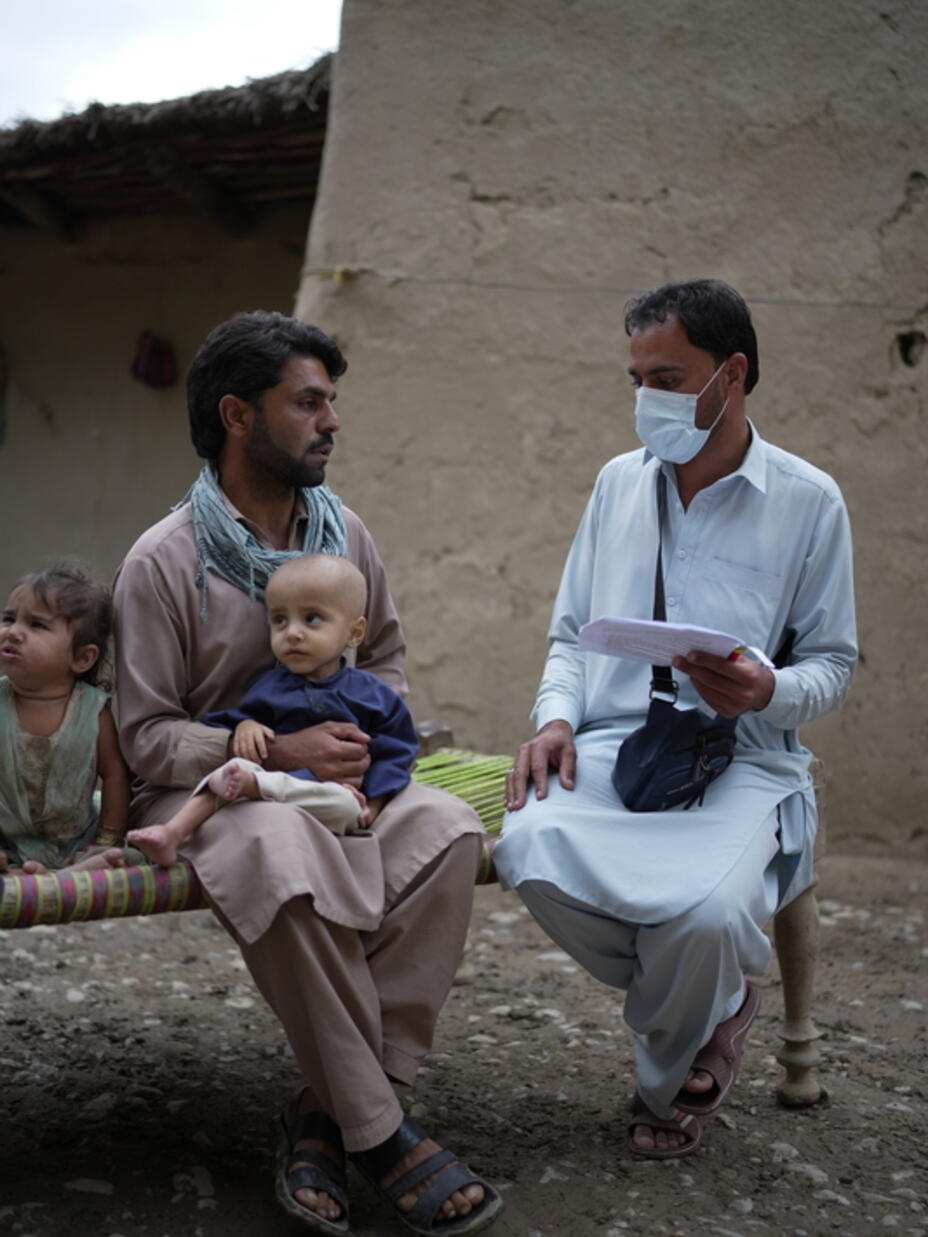
Health officers on the ground know too well what most of their patients have gone through, and what needs they face on a daily basis – many of them even visit their patients at their homes to do routine check-ups. By listening intently to their problems and seeing their living conditions up close, they’re able to better get clients the help that they need.
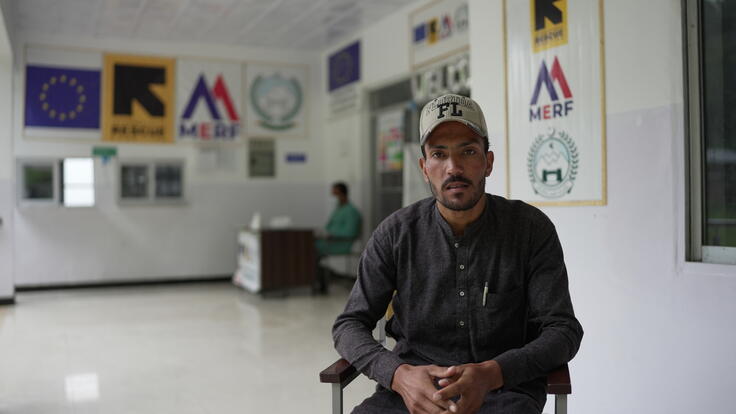
But it isn’t only physical issues that are treated – the services extend to mental health and psychological support. Khalid, a resident of the community, visited the IRC’s facility because he thought he was suffering from a stomach problem.
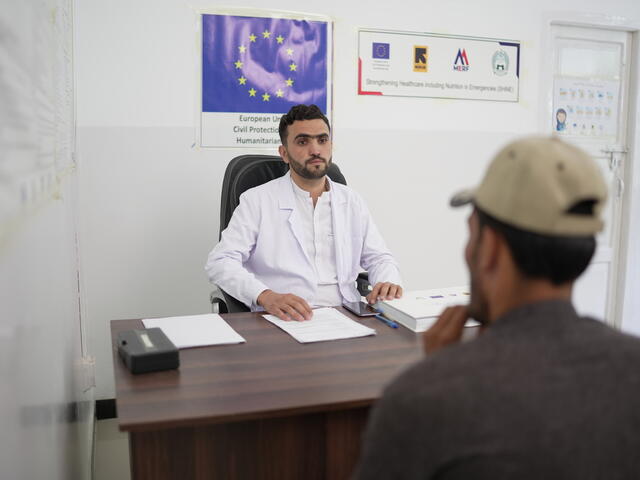
He was referred to the resident psychologist, and eventually diagnosed with anxiety. After going through a number of counselling sessions, he feels happier and more content today.
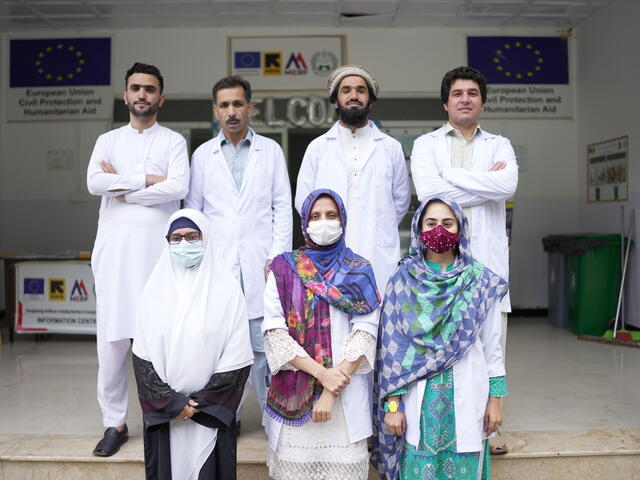
The IRC staff at the facility display an unwavering passion for what they do, despite working in often challenging and unstable conditions. The community feels reassured that someone is there to lend an ear, and to support them when times are rough.
Hearing words of encouragement from their patients – and seeing the smiles and laughter of the children that they treat – keeps their spirits high to this day, no matter what obstacles they must overcome.
The International Rescue Committee partners with the European Union to provide life-saving support to people caught in conflict and disasters around the world. Our work funded by the EU enables people to survive, recover and rebuild their lives.

